As a seasoned pet blogger, I’ve delved into numerous studies, conversed with veterinarians, and scoured pet nutrition guides to bring you this comprehensive list of 13 Shocking Diet Secrets for Labradors: What They Should Never Eat!
Labradors are known for their friendly nature and voracious appetite, making it crucial for pet parents to be mindful of their diet. Let’s dive into the forbidden foods that could harm your furry friend and discover healthier alternatives to keep them happy and thriving.
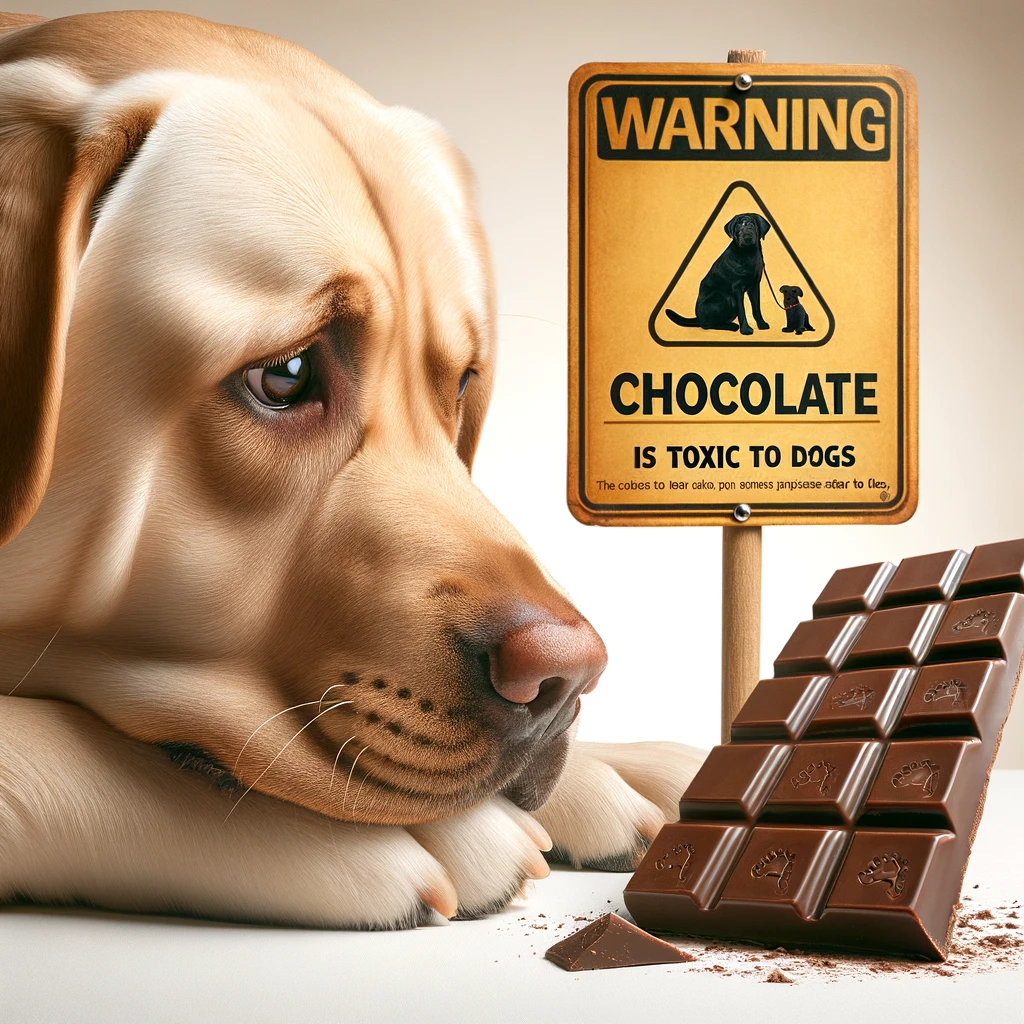
Here’s a table summarizing the key points from the blog post about the diet secrets for Labradors and what they should never eat:
| Type | Forbidden Food | Why It’s Bad | Safe Alternatives |
|---|---|---|---|
| 🍇 | Grapes and Raisins | Can cause kidney failure. | Sliced apples (without seeds), blueberries. |
| 🍫 | Chocolate | Contains theobromine and caffeine, harmful to dogs. | Dog-safe chocolates, carob. |
| 🧅 | Onions and Garlic | Can destroy red blood cells, leading to anemia. | Safe herbs like parsley. |
| 🥑 | Avocado | Contains persin, which can cause vomiting and diarrhea. | Plain, unsweetened yogurt. |
| 🍖 | Bones and Fat Trimmings | Cooked bones can splinter; fat trimmings can lead to pancreatitis. | Specially designed chew toys, dental treats. |
| 🍬 | Xylitol | Causes a rapid insulin release, leading to hypoglycemia. | Treats made specifically for dogs. |
| 🍦 | Dairy Products | Many dogs are lactose intolerant, leading to digestive issues. | Freeze low-sodium chicken broth, pet-safe fruit ice cubes. |
| ☕ | Caffeine | Extremely dangerous, can be fatal. | Fresh water. |
| 🍺 | Alcohol | Affects liver and brain, can be toxic even in small amounts. | Dog-safe “mocktails.” |
| 🍒 | Cherries | Contain cyanide in pits, stems, and leaves, which is toxic. | Sliced bananas, apples (without seeds). |
| 🍞 | Yeast Dough | Can rise in the stomach, causing gas and potentially rupturing. | Cooked pumpkin, sweet potato pieces. |
| 🍟 | Salty Snacks | High salt content can lead to sodium ion poisoning. | Low-sodium dog treats. |
| 🥜 | Macadamia Nuts | Poisonous to dogs, can cause various symptoms. | Unsalted, roasted peanuts (in moderation, consult vet). |
This table is a quick guide to what foods to avoid and what alternatives you can safely offer your Labrador. Always consult with a veterinarian before making significant changes to your pet’s diet or introducing new foods.
🍇 1. Grapes and Raisins
Did you know that grapes and raisins can be extremely toxic to Labradors? Just a small amount can lead to kidney failure. Researchers are still trying to pinpoint the exact toxic substance found in these fruits.
It’s essential to keep grapes and raisins out of reach. Instead, offer your Lab healthy fruit snacks like sliced apples (without seeds) or blueberries in moderation.
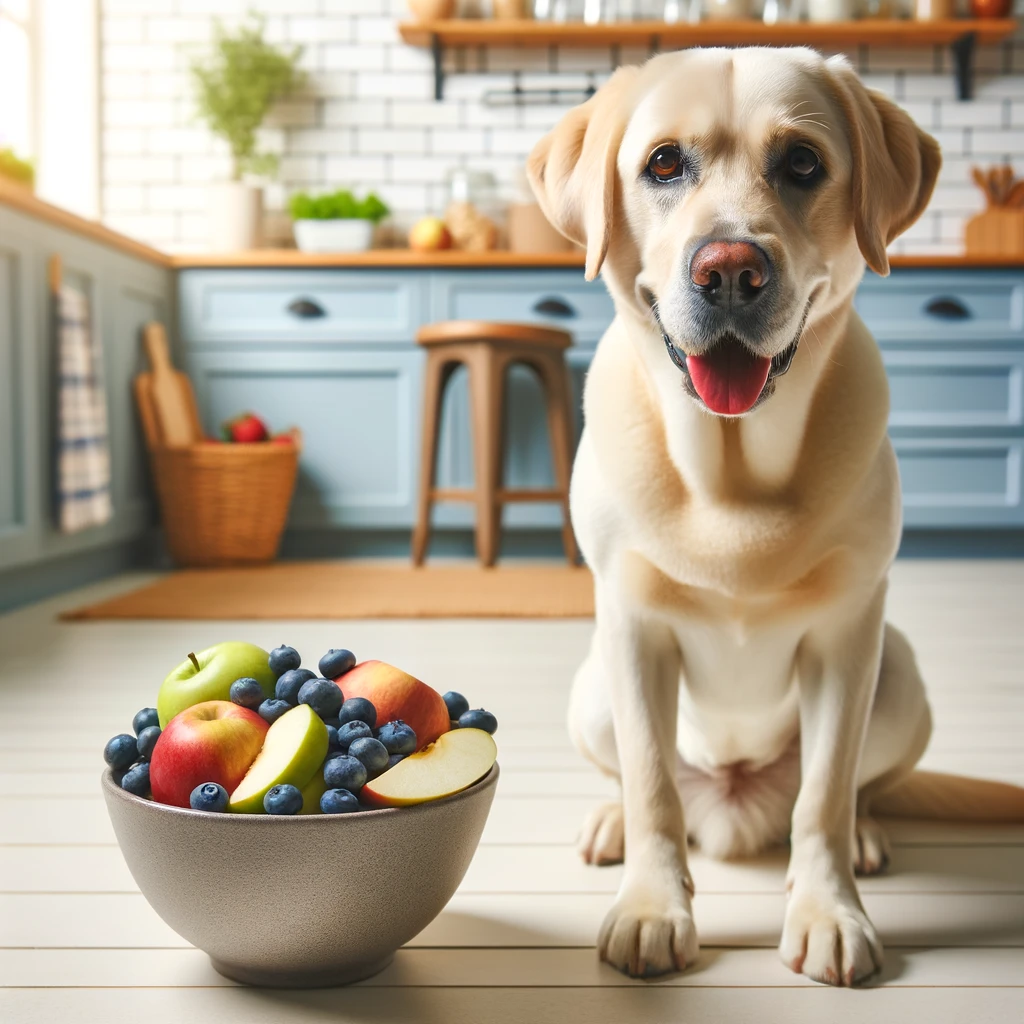
🍫 2. Chocolate
Chocolate is a well-known no-no for all dogs, including Labradors. It contains theobromine and caffeine, which are harmful to dogs. Even a small amount can cause serious health issues, from vomiting to more severe conditions like arrhythmias or seizures.
Always store chocolate far from your dog’s reach. As a treat, opt for dog-safe chocolates or carob as a healthy alternative.
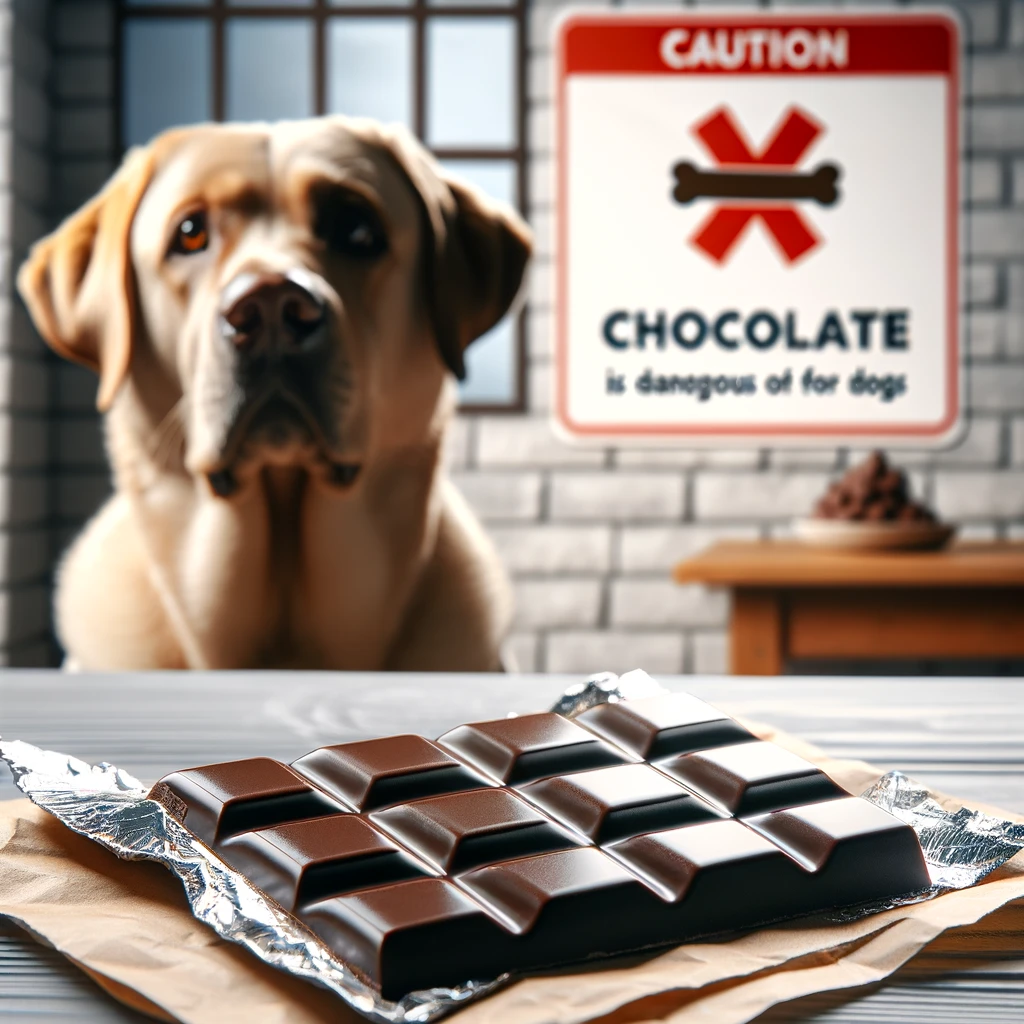
🧅 3. Onions and Garlic
Onions and garlic, in all forms (raw, cooked, or powder), can destroy a dog’s red blood cells, leading to anemia. This condition can be hard to detect at first but can become life-threatening.
To spice up your dog’s meals, use safe herbs like parsley. Always consult with your vet before introducing new foods into your Labrador’s diet.
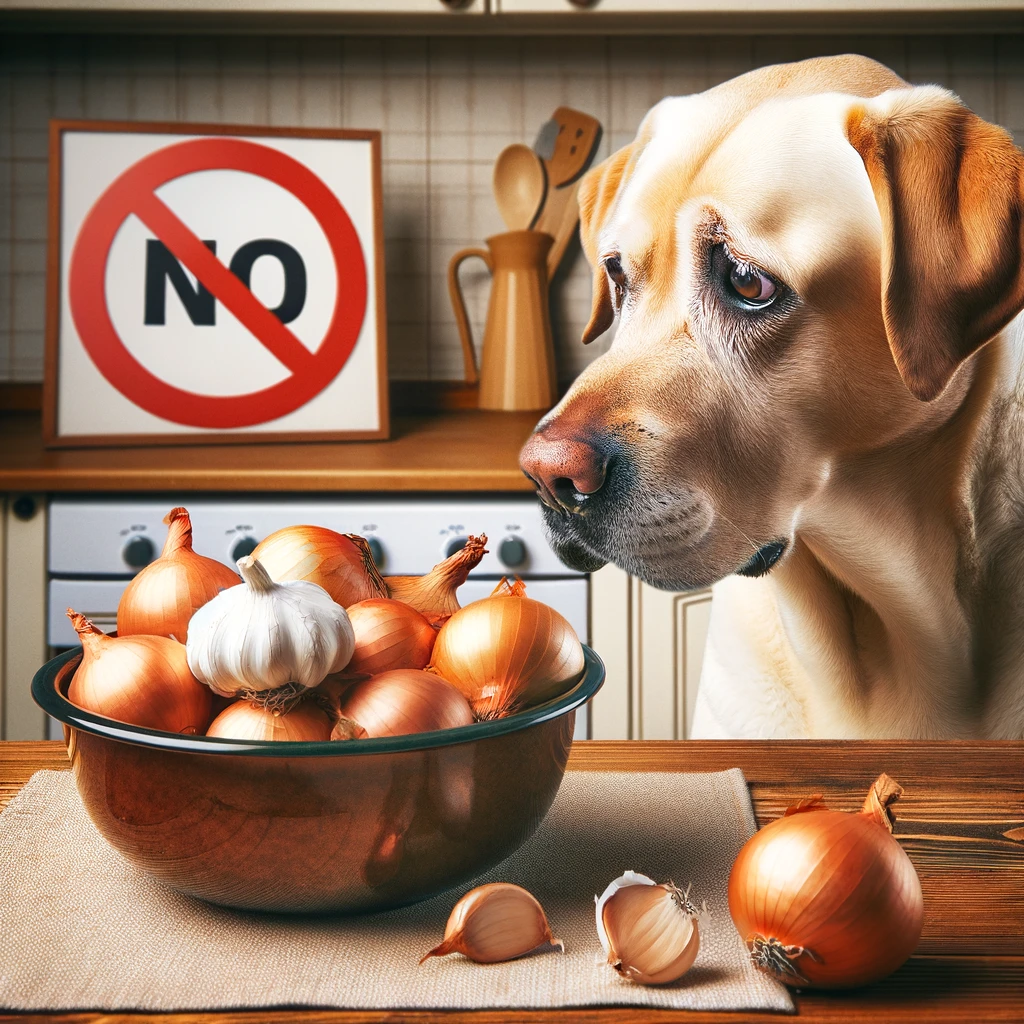
🥑 4. Avocado
Avocado contains persin, a toxin that can cause vomiting and diarrhea in dogs. While it’s more dangerous for birds and large animals, it’s best to avoid giving avocados to your Labrador.
For a creamy treat, try giving your pup some plain, unsweetened yogurt in small amounts.
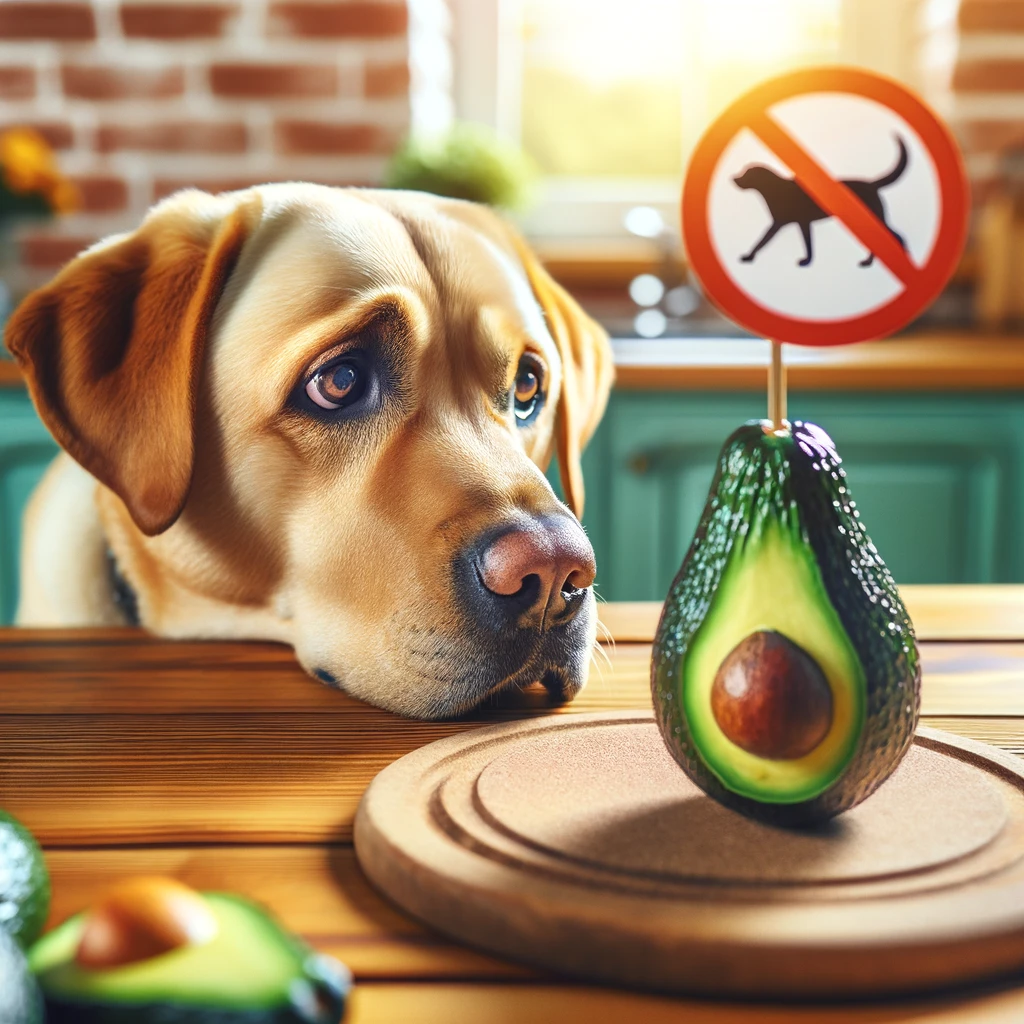
🍖 5. Bones and Fat Trimmings
Cooked bones can splinter and cause internal damage or obstructions. Fat trimmings, whether cooked or raw, can also lead to pancreatitis.
Instead, offer your Lab specially designed chew toys or treats that can help with dental health without the risks.
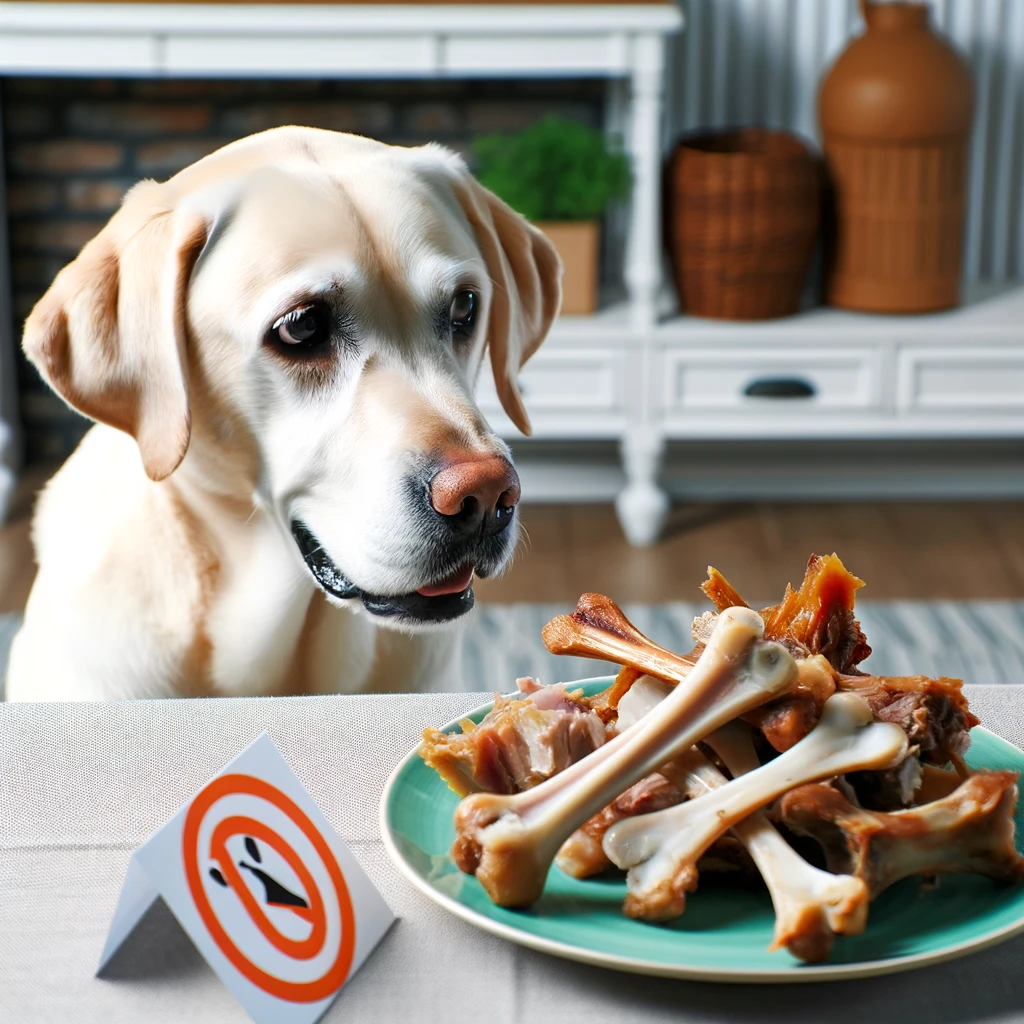
🍬 6. Xylitol
Xylitol is an artificial sweetener found in many products, including sugar-free gum and baked goods. It can cause a rapid insulin release in dogs, leading to hypoglycemia and even liver failure.
Always check product labels and keep xylitol-containing items away from your dog. Offer them treats made specifically for canines instead.
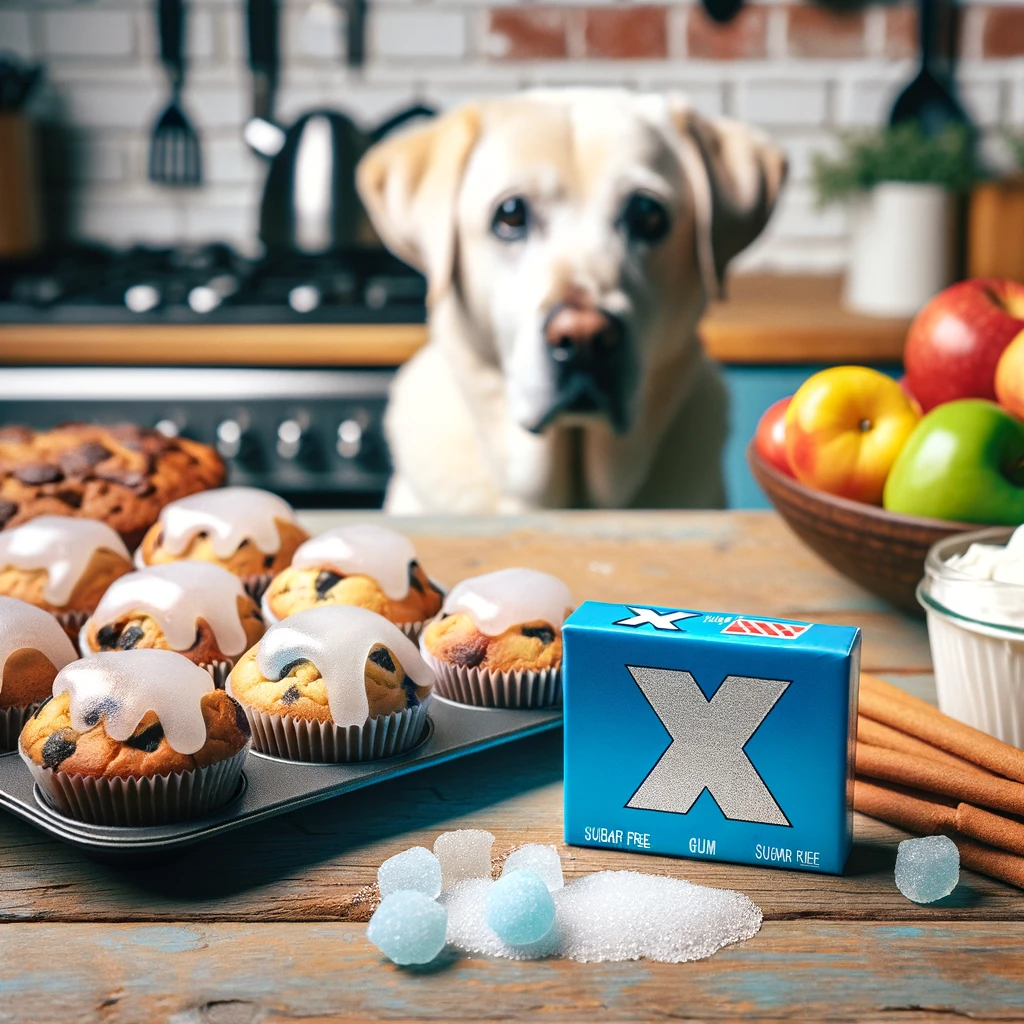
🍦 7. Dairy Products
While some dogs can tolerate small amounts of dairy, many are lactose intolerant. Consuming dairy can lead to digestive issues like gas, diarrhea, and vomiting.
For a cool treat, freeze some low-sodium chicken broth or make ice cubes from pet-safe fruits and vegetables.
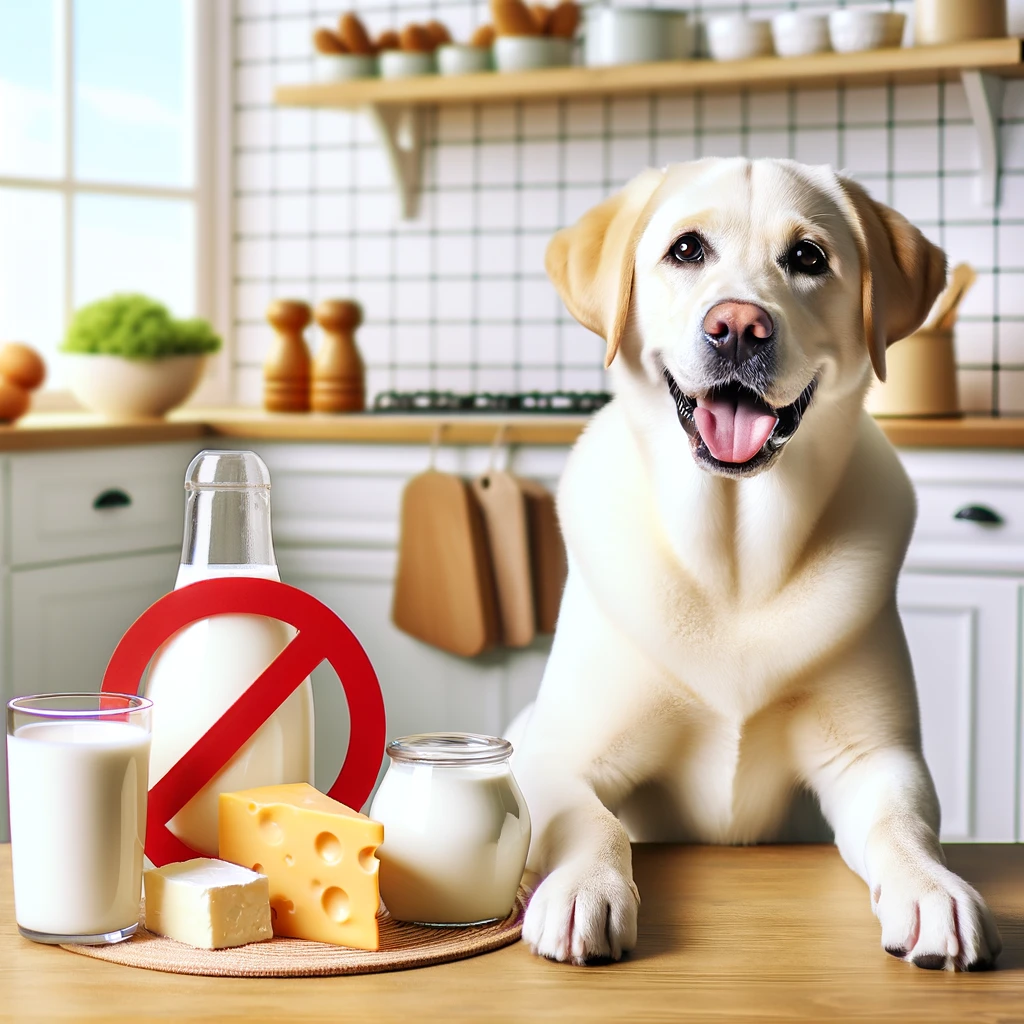
☕ 8. Caffeine
Caffeine is extremely dangerous for dogs and can be fatal in higher doses. It’s not just in coffee but also in tea, soda, and energy drinks.
Always keep caffeinated beverages out of your dog’s reach and offer them plenty of fresh water instead.
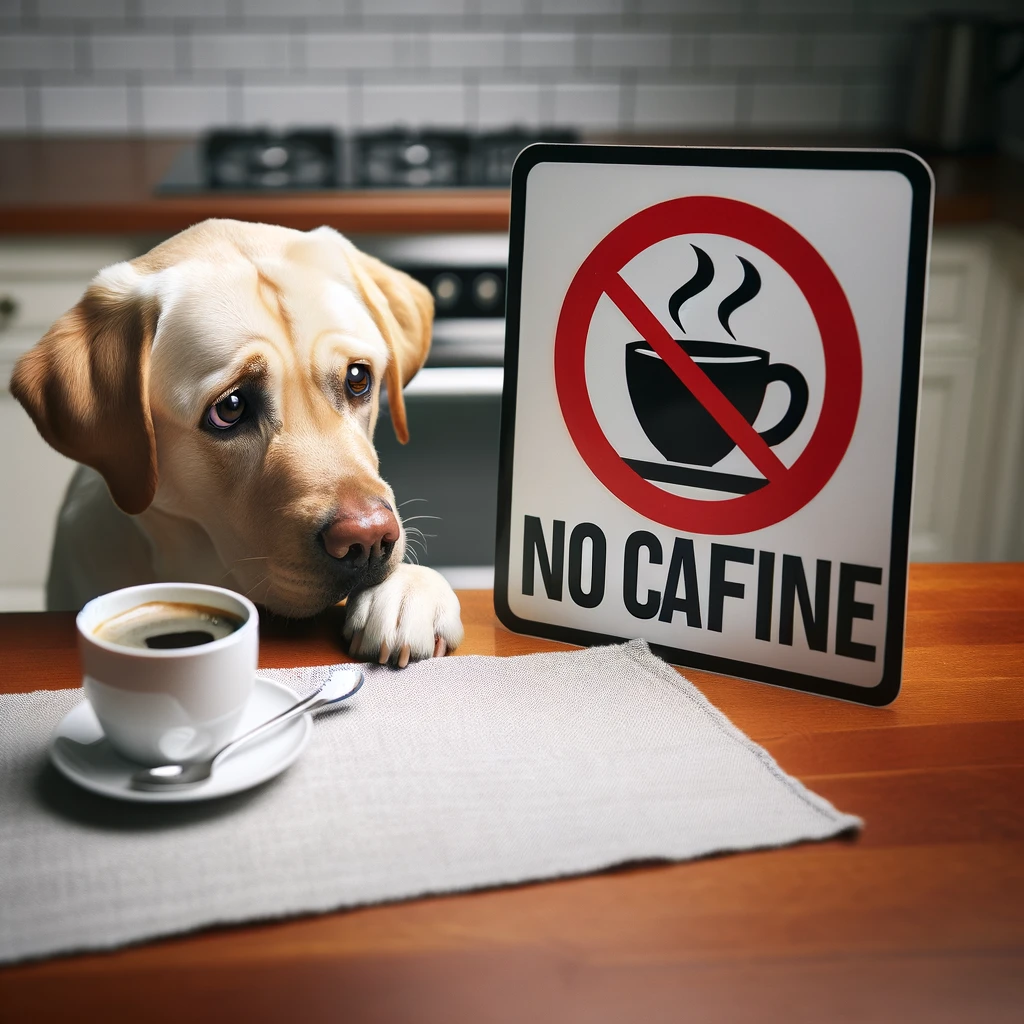
🍺 9. Alcohol
Even small amounts of alcohol can be toxic to dogs, affecting their liver and brain much like it does in humans, but with much quicker and severe consequences.
Always ensure your drinks are out of your dog’s reach. Offer them dog-safe “mocktails,” like a mix of broth and water with a fun ice cube thrown in.
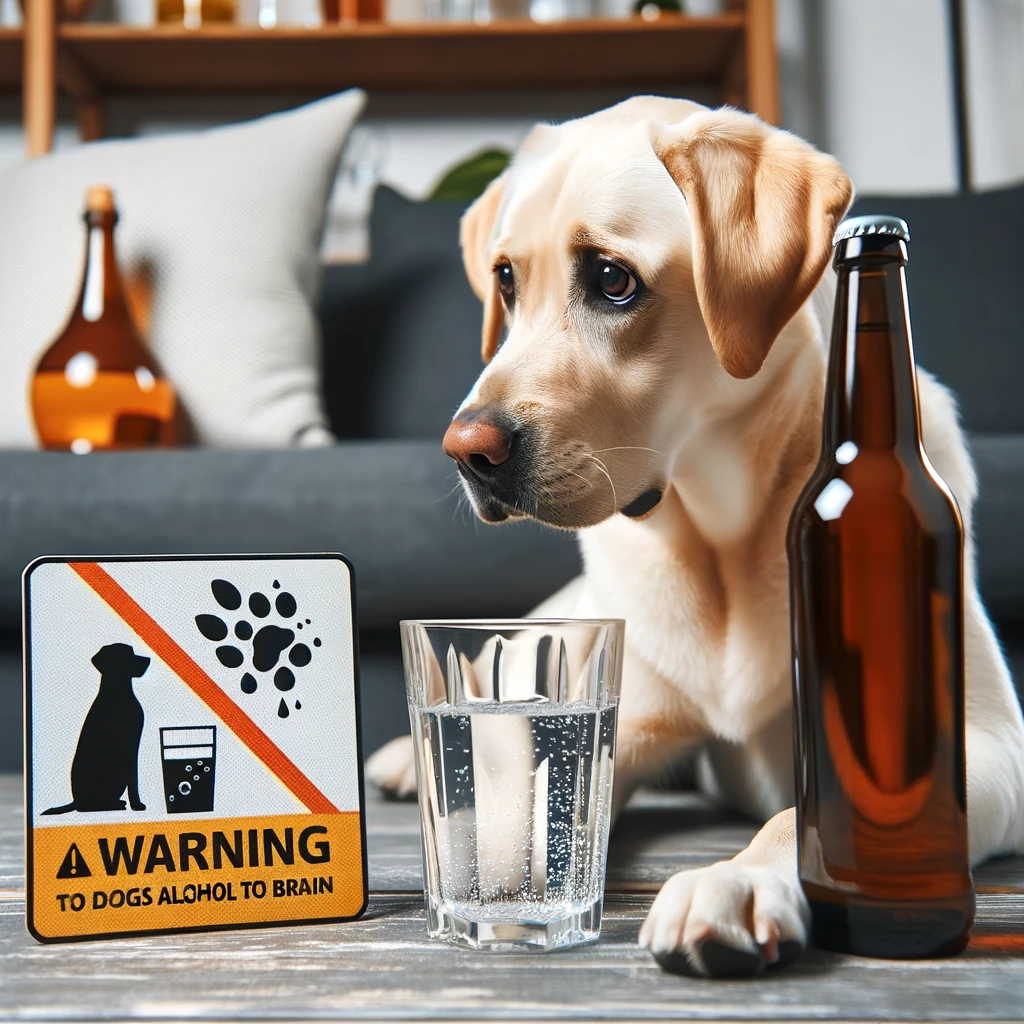
🍒 10. Cherries
Cherries contain cyanide in their pits, stems, and leaves, which is toxic to dogs. The fruit itself isn’t toxic, but it’s too risky due to the small size of the pits.
Offer safe fruits like sliced bananas or apples (without the seeds) as a sweet treat instead.
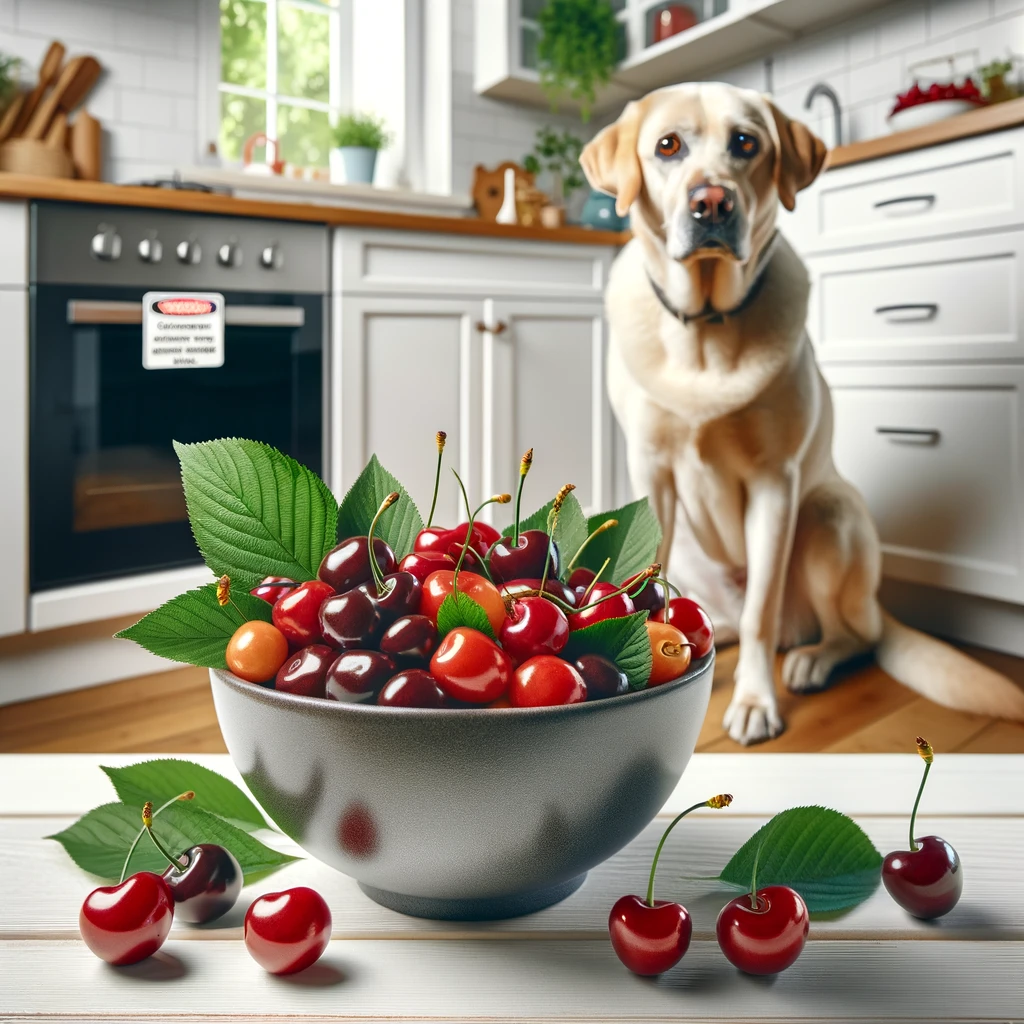
🍞 11. Yeast Dough
Yeast dough can rise and cause gas to accumulate in your dog’s digestive system. This can be painful and potentially cause the stomach or intestines to rupture.
For a safe and fun alternative, give your Labrador pieces of cooked pumpkin or sweet potato.

🍟 12. Salty Snacks
High salt content can lead to excessive thirst and urination, and potentially sodium ion poisoning in dogs.
Stick to low-sodium treats specifically designed for dogs, and always keep human snacks out of their reach.
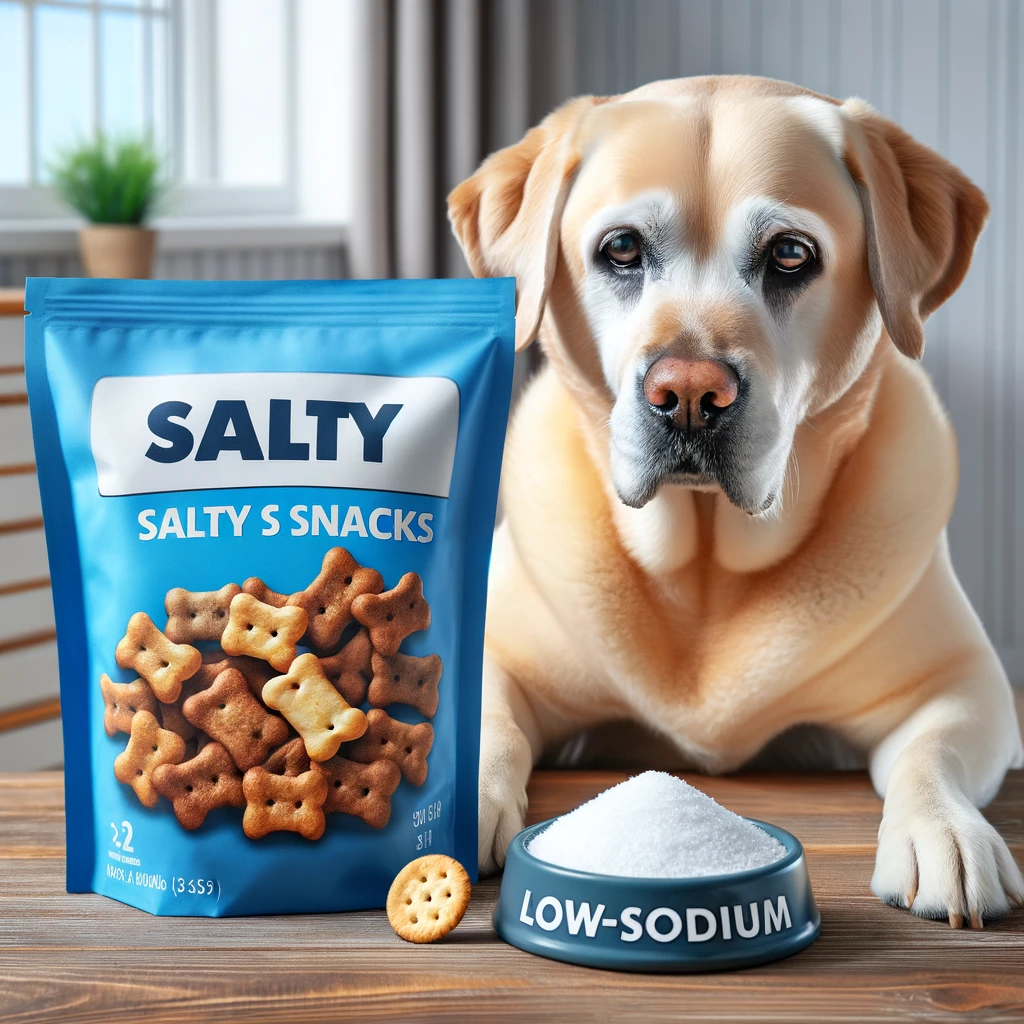
🥜 13. Macadamia Nuts
Macadamia nuts are poisonous to dogs and can cause weakness, vomiting, tremors, and hyperthermia. Symptoms usually appear within 12 hours and can last up to 48 hours.
If you wish to give your Labrador nuts as a treat, opt for safer alternatives like unsalted, roasted peanuts in moderation. However, always consult with your vet first, as nuts are high in fat and can lead to pancreatitis over time.
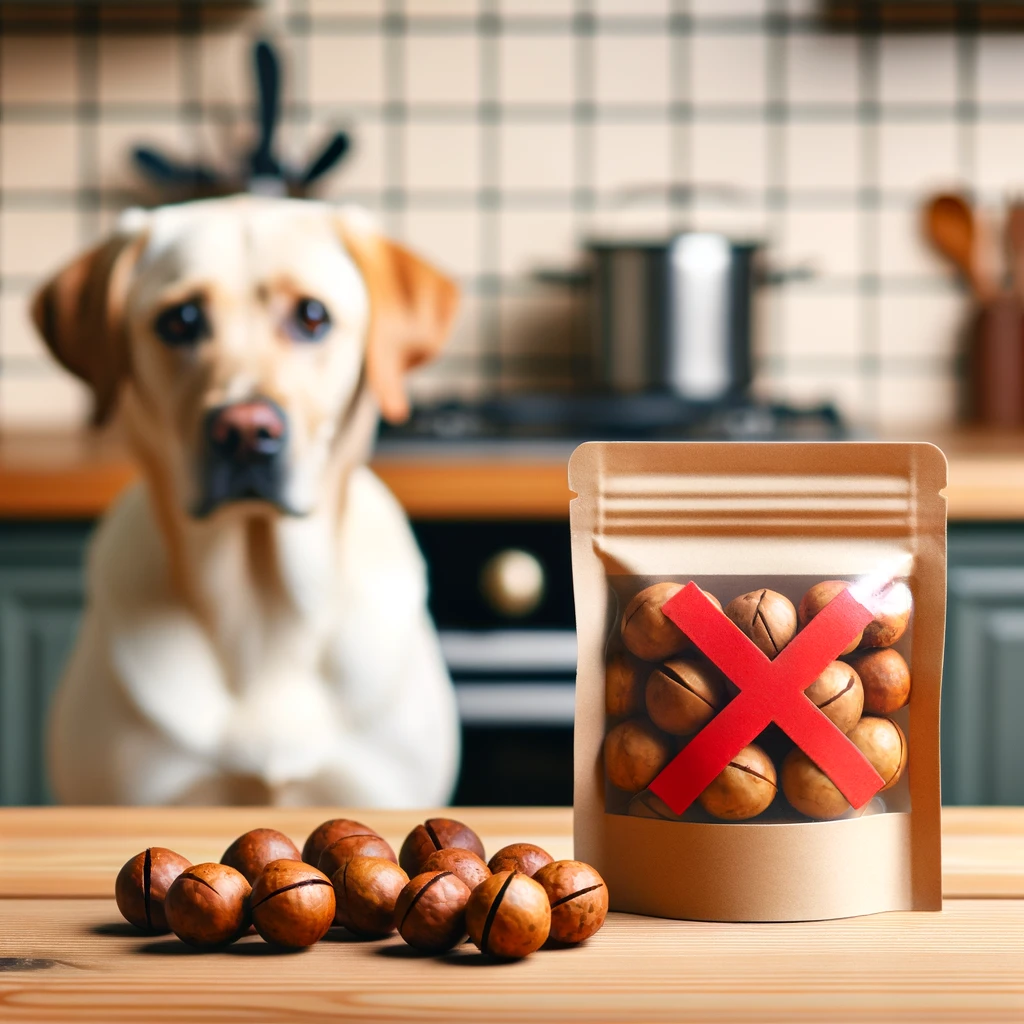
Conclusion:13 Shocking Diet Secrets for Labradors: What They Should Never Eat!
Feeding your Labrador a healthy and safe diet is crucial for their well-being. Remember, what might be a harmless snack for humans can be dangerous, or even deadly, for dogs. Always err on the side of caution and consult with your veterinarian before introducing new foods into your pet’s diet.
For more detailed information and studies on dog nutrition and toxic foods, reputable sites such as the ASPCA (American Society for the Prevention of Cruelty to Animals), PetMD, and the AKC (American Kennel Club) offer a wealth of resources. Always keep emergency numbers, including your vet’s contact information and the ASPCA Animal Poison Control Center hotline, readily available in case of accidental ingestion of harmful substances.
Taking care of a Labrador requires knowledge, patience, and a lot of love. By keeping these diet secrets in mind, you can ensure your furry friend lives a long, happy, and healthy life by your side.
Related Links
For more comprehensive information, resources, and community support on Labrador Retrievers, the following external websites are highly recommended:
- American Kennel Club (AKC) – Labrador Retriever: A detailed guide on Labrador Retrievers, including breed information, care, and training tips. Visit AKC’s Labrador Retriever page.
- Labrador Retriever Club, Inc.: The official website of the parent club for the Labrador Retriever in the United States, sanctioned by the AKC. It offers resources on breed health, rescue, and responsible breeding. Visit the Labrador Retriever Club.
- PetMD – Labrador Retriever: Offers a comprehensive overview of Labrador Retrievers, including health, nutrition, and care advice. Visit PetMD’s Labrador Retriever section.
- The Labrador Site: A helpful resource for Labrador Retriever owners and enthusiasts, offering training tips, health advice, and information on puppy care. Visit The Labrador Site.
- Labrador Retriever Rescue: A dedicated site for the adoption and rescue of Labrador Retrievers across the United States. It’s a great resource for those looking to adopt a Lab or learn more about rescue efforts. Visit Labrador Retriever Rescue.
These sites offer a wealth of information for both prospective and current Labrador Retriever owners, covering everything from breed-specific care and health issues to training tips and community forums.
